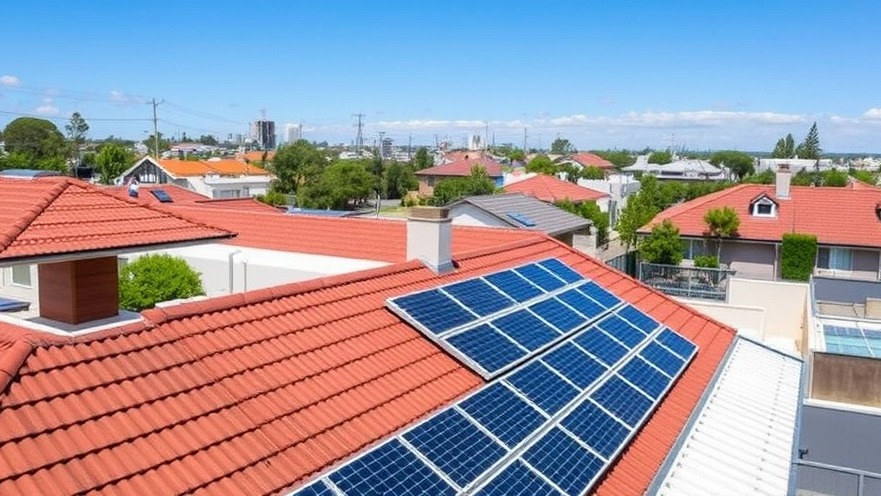
Australia's Commitment to Renewable Energy Solutions
As Australia grapples with rising energy costs and climate change, a clear consensus is emerging: the future lies in renewable energy technologies. Recent polling by the Clean Energy Council reveals that an overwhelming 80% of Australians support the expansion of rooftop solar, while only a minority endorses a return to coal or the introduction of nuclear energy. This shift in public sentiment underscores a crucial transition in how we perceive energy production and consumption in our daily lives.
The Rising Support for Renewables
The sentiments expressed by Solar Citizens CEO, Heidi Lee Douglas, highlight a pivotal challenge: ensuring that all Australians have access to clean energy solutions. With over 200,000 supporters advocating for change, the message is clear: many Australians are ready for a transition that prioritizes accessibility and sustainability. Douglas emphasizes the urgent need for the government to facilitate broader access to rooftop solar, especially for underrepresented demographics such as renters, apartment dwellers, and those in social housing.
Transforming Energy Storage: A Key to Economic Relief
Moreover, a proposed Federal Home Battery Rebate could potentially revolutionize the way energy is stored and used across households. As Solar Citizens expressed, the vision is to empower a million homes with battery storage by 2030, aligning with the Australian Energy Market Operator’s plans. This initiative is not just about energy independence; it’s a pathway toward reduced energy costs while supporting the grid's stability.
Confronting Myths and Misconceptions
While discussions about nuclear energy often surface, experts urge a focus on existing sustainable solutions. Renewables have already shown significant promise, making up approximately 35.9% of Australia’s total electricity generation as of last year. The Clean Energy Council’s commitment to dispelling misinformation on clean energy showcases the critical need for informed discourse amidst an evolving energy landscape. As the industry advocates for this transition, it is vital to address prevalent misconceptions regarding the reliability and viability of renewables compared to fossil fuels.
Comparative Insights from Global Trends
Looking globally, Australia is not alone in its pursuit of renewable energy. Many nations are investing heavily in technologies like wind and solar energy, which have repeatedly proven to be more economically viable in the long run compared to traditional energy sources. For example, countries like Germany and Denmark are illustrative success stories of aggressive renewable policy adoption, leading to stable energy prices and drastically reduced emissions.
Future Implications: A Cleaner, More Equitable Landscape
As we look forward, the implications of these changes are profound. A significant shift towards renewable energy not only addresses environmental concerns but also promises economic benefits for all Australians. The broader accessibility of renewables, alongside advancements in battery technology and energy storage, presents a solution for financial pressures faced by households. With the impending 2025 federal elections, there’s an opportunity for voters to advocate for candidates who prioritize clean energy initiatives.
Call to Action: What You Can Do
Consumers and citizens can play a pivotal role in this transition by advocating for policies that promote renewable energy accessibility and by considering renewable energy solutions in their own lives. Whether it’s installing rooftop solar or supporting initiatives that provide subsidies for clean energy technologies, every action contributes towards a sustainable future. Now is the time for Australians to unite in support of a cleaner, greener, and more equitable energy landscape.
 Add Row
Add Row  Add
Add 




 Add Row
Add Row  Add
Add 

Write A Comment